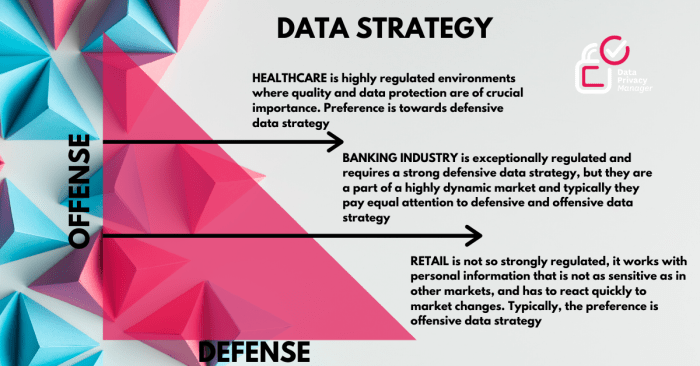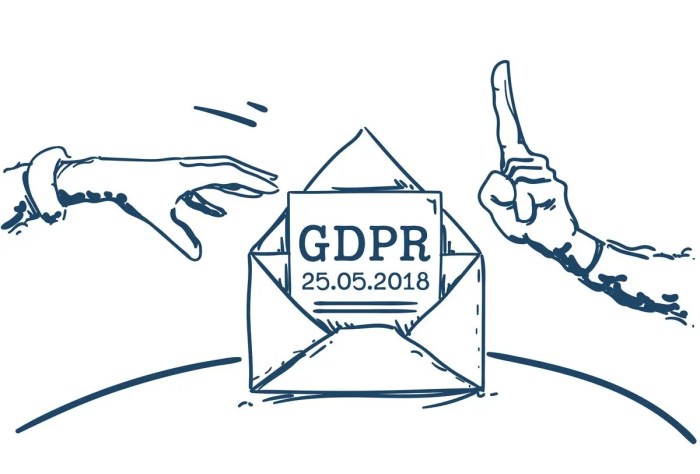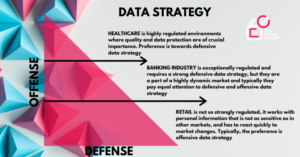
GDPR in direct marketing has become a pivotal topic for businesses navigating the complexities of consumer data protection. This regulation, effective since 2018, is not just a compliance checkbox but a transformative force that reshapes how companies interact with their audience, ensuring that privacy and consent are at the forefront of marketing strategies.
As organizations adapt to GDPR, they face the challenge of balancing innovative marketing techniques with stringent regulations. This involves rethinking traditional methods, enhancing transparency, and ensuring that customer trust is maintained through proactive data handling practices.
Overview of GDPR in Direct Marketing
The General Data Protection Regulation (GDPR) has significantly influenced the direct marketing landscape by introducing stringent rules to protect consumer data. Its core principles, including data minimization, consent, and transparency, require businesses to rethink their marketing strategies.The implications for direct marketing are profound. Companies must now prioritize data protection and respect customer privacy, changing how they approach marketing. This shift has led to the development of more ethical marketing practices that align with consumer expectations for privacy.
Core Principles and Compliance Requirements
GDPR is centered on several foundational principles that directly affect direct marketing:
- Lawfulness, Fairness, and Transparency: Businesses must process personal data in a lawful manner. This includes obtaining explicit consent from individuals when collecting their data.
- Purpose Limitation: Data collected must be for specified, legitimate purposes and not processed further in ways incompatible with those purposes.
- Data Minimization: Companies are urged to collect only the data necessary for their marketing objectives, reducing the risk of data breaches.
- Accuracy: Businesses must ensure that personal data is accurate and up to date.
- Storage Limitation: Personal data should not be kept longer than necessary for its intended purpose.
Key compliance requirements for businesses engaged in direct marketing include:
- Obtaining clear and informed consent from consumers.
- Implementing measures to enhance data security.
- Providing individuals with rights to access, rectify, or delete their data.
Impact on Business Innovation
GDPR has catalyzed innovation in direct marketing by pushing businesses to find creative ways to engage customers while ensuring compliance with data protection regulations. The need for compliance has led to the development of various innovative solutions.
Innovative Solutions and Comparison with Traditional Marketing
Examples of innovative solutions include:
- Privacy-First Marketing Techniques: Companies are adopting strategies that prioritize customer consent and data privacy, such as using double opt-in forms for email subscriptions.
- Data Anonymization: Marketers are utilizing anonymized data to analyze consumer behavior without compromising personal information.
When comparing traditional marketing techniques with GDPR-compliant methods, the differences are stark:
- Traditional marketing often relies on broad targeting without considering individual consent, while GDPR-compliant methods prioritize explicit permission to use personal data.
- GDPR mandates transparency about how data is used, contrasting with traditional methods that might not disclose data usage adequately.
International Business Considerations
The impact of GDPR extends beyond the borders of the EU, affecting international marketing efforts significantly. Businesses operating globally must navigate a complex landscape of data protection regulations.
Guidelines for International Compliance
Companies engaged in international marketing should consider the following guidelines to ensure compliance with GDPR:
- Understand local data protection laws in addition to GDPR to ensure compliance across different jurisdictions.
- Implement standardized data handling processes that align with GDPR requirements while being adaptable to local regulations.
- Engage legal counsel to navigate the nuances of international data transfer and processing.
Case studies of international companies adapting to GDPR show a range of strategies. For instance, organizations have revamped their customer engagement approaches to focus on transparency and consent, enhancing customer trust across markets.
Business Interviews and GDPR
Interviews with marketing professionals can provide valuable insights into the challenges and successes encountered in navigating GDPR compliance.
Framework for Conducting Interviews
A structured approach to interviewing marketing professionals may include:
- Asking about specific challenges faced in implementing GDPR compliance in their marketing strategies.
- Exploring innovative solutions developed to overcome these challenges.
- Inquiring about best practices that have emerged from their experiences.
Best practices for conducting these interviews include:
- Creating a comfortable environment where interviewees feel safe sharing their experiences.
- Using open-ended questions to encourage detailed responses and insights.
Job Search Techniques Post-GDPR
The introduction of GDPR has transformed how job applicant data is handled, necessitating changes in recruitment practices.
Effective Presentation of Candidates
Candidates must present their personal data thoughtfully to comply with GDPR. Methods for effective presentation include:
- Minimizing personal information shared on resumes and cover letters to only what is necessary for the application.
- Utilizing secure channels for submitting applications to protect data privacy.
Recruitment marketing strategies have evolved to ensure compliance, focusing on transparency and consent in candidate data handling.
Business Management and GDPR
Managing GDPR compliance in direct marketing requires strategic oversight and commitment from leadership.
Management Strategies for Compliance
Key management strategies include:
- Establishing a dedicated compliance team responsible for monitoring GDPR adherence.
- Regular training sessions for marketing teams on data protection best practices.
- Implementing robust data security measures to safeguard customer information.
A checklist for managers can help ensure adherence to GDPR regulations, including regular audits and updates on compliance status.
Direct Marketing Strategies
Effective direct marketing strategies must now align with GDPR regulations to be successful.
Successful Campaigns and Importance of Consent
Examples of successful GDPR-compliant campaigns demonstrate that transparency and consent are key:
- Brands employing clear consent forms for email marketing have reported higher engagement rates.
- Campaigns that provide customers with clear information about how their data will be used enhance trust and loyalty.
The importance of transparency cannot be overstated; it forms the foundation of modern marketing efforts under GDPR.
Business Networking and GDPR
Networking events and data collection practices have been altered due to GDPR, requiring a careful approach to data handling.
Best Practices for Networking
Businesses should adopt best practices to ensure GDPR compliance during networking:
- Clearly inform contacts about how their information will be used during networking events.
- Obtain explicit consent before adding contacts to marketing lists.
A well-structured networking plan can help businesses connect effectively while respecting data privacy.
Business Outsourcing and GDPR
Outsourcing marketing functions presents unique challenges under GDPR, requiring careful management of third-party relationships.
Ensuring Third-Party Compliance
Best practices for ensuring compliance include:
- Conducting thorough due diligence on third-party vendors to confirm they adhere to GDPR standards.
- Incorporating GDPR compliance clauses in contracts with outsourcing partners.
Understanding the risks associated with outsourcing under GDPR is crucial for safeguarding customer data.
Business Presentation on GDPR Compliance
Presenting GDPR compliance effectively to stakeholders is essential for gaining support for data protection initiatives.
Structure for Presentations
A well-structured presentation should cover:
- The importance of GDPR compliance and its impact on business reputation.
- Specific steps taken to achieve compliance and the associated benefits.
- Metrics for measuring the success of GDPR compliance efforts.
Effective visual communication of GDPR-related data can enhance stakeholder engagement and understanding.
Business Productivity in a GDPR Context
GDPR compliance can impact productivity within marketing teams, leading to the need for new tools and technologies.
Improving Productivity and Efficiency
Strategies for maintaining efficiency include:
- Utilizing GDPR compliance tools to streamline data management processes.
- Implementing automation where appropriate to reduce manual data handling.
Balancing productivity with compliance is key to success in a GDPR environment.
Case Study: GDPR in the Restaurant Industry
The restaurant industry has seen significant changes in customer data collection practices post-GDPR.
Innovative Marketing Approaches
Restaurants have adapted by:
- Implementing clear consent mechanisms for customer loyalty programs.
- Using anonymized data to tailor marketing efforts while respecting customer privacy.
The focus on customer consent and data protection has reshaped marketing strategies in this sector.
Resumes and Cover Letters in a GDPR Era
Job seekers must now navigate GDPR when preparing resumes and cover letters.
Handling Personal Data
Candidates should be mindful of how they present personal data:
- Using generic email addresses and avoiding unnecessary personal details.
- Ensuring that application methods are secure to protect their data.
Examples of resume formats that respect privacy concerns include minimizing identifiable information.
GDPR’s Influence on Business Retail Strategies
Retail marketing tactics and customer engagement have been affected by GDPR, leading to new approaches.
Challenges and Effective Strategies

Retailers face challenges such as:
- Adjusting promotional strategies to ensure compliance while engaging customers.
- Finding ways to maintain customer trust amidst heightened scrutiny of data practices.
Effective GDPR-compliant promotional strategies include transparency about data usage and offering opt-in choices.
Risk Management and GDPR
Non-compliance with GDPR in direct marketing poses significant risks for businesses.
Risk Management Strategies

To mitigate GDPR-related threats, businesses should:
- Conduct regular risk assessments to identify potential vulnerabilities.
- Implement comprehensive data protection measures.
A well-defined framework for managing risks can safeguard against GDPR violations.
Business Sales and GDPR
GDPR has a considerable impact on sales processes and how companies interact with customers.
Sales Tactics Aligned with GDPR
Effective sales tactics include:
- Ensuring all customer interactions are compliant with data protection regulations.
- Leveraging customer consent to enhance engagement and build trust.
Maintaining customer trust while adhering to GDPR is paramount for long-term business success.
Sales Management and GDPR Compliance
Sales managers play a critical role in ensuring their teams are compliant with GDPR.
Best Practices for Training
Training strategies should involve:
- Regular workshops on GDPR regulations and implications for sales activities.
- Monitoring team performance against GDPR compliance KPIs.
Ensuring sales staff are well-informed can enhance overall compliance efforts.
Sales Teleselling Under GDPR
Teleselling practices have faced challenges due to GDPR regulations.
Conducting Compliant Telesales
Techniques for conducting GDPR-compliant telesales include:
- Obtaining explicit consent before initiating sales calls.
- Keeping accurate records of consent and customer interactions.
Creating effective teleselling scripts that prioritize compliance can enhance sales success.
Sales Training Focused on GDPR
Training sales teams on GDPR compliance is critical in today’s business landscape.
Curriculum Development
An effective training curriculum should incorporate:
- Understanding GDPR principles and their relevance to sales.
- Real-world examples of compliance challenges and solutions.
Resources that enhance understanding of GDPR in sales contexts include workshops and online courses.
Business Security in a GDPR Environment
Implementing security measures is essential for GDPR compliance in marketing.
Protecting Customer Data
Best practices for data protection during marketing campaigns include:
- Employing encryption and secure storage solutions for customer data.
- Training staff on data security protocols and GDPR obligations.
The role of technology in enhancing data security cannot be understated, serving as a crucial tool in compliance efforts.
Small Business Adaptation to GDPR
Small businesses face unique challenges in complying with GDPR.
Cost-Effective Strategies
To implement GDPR compliance cost-effectively, small businesses can:
- Utilize free or low-cost GDPR compliance tools and templates.
- Focus on transparent communication with customers regarding data practices.
Customer communication plays a vital role in establishing trust and credibility in data handling.
Solo Professionals and GDPR
Solo professionals must navigate GDPR compliance while managing client relationships.
Effective Management Strategies
Strategies for solo practitioners include:
- Implementing simple data management practices to safeguard client information.
- Utilizing secure methods for communication and data storage.
Resources available to understand GDPR regulations include online courses and local workshops.
Strategic Planning with GDPR in Mind
Incorporating GDPR considerations into strategic planning is crucial for businesses.
Examples of Strategic Goals
Strategic goals that align with GDPR compliance might include:
- Developing a data protection strategy that integrates with overall business objectives.
- Establishing metrics to measure compliance effectiveness and customer trust.
Data protection impact assessments should be included in strategic planning to identify potential risks.
Team Building Around GDPR Compliance
Creating a culture of data protection within teams is essential for compliance.
Assessing Team Knowledge and Readiness
Team-building activities can emphasize the importance of GDPR compliance by:
- Conducting workshops on GDPR principles and their implications for marketing.
- Implementing team assessments to gauge readiness and knowledge of GDPR.
Fostering a culture of data protection encourages accountability and commitment to compliance.
Venture Capital and GDPR Considerations
GDPR impacts investment decisions in startups and scale-ups.
Best Practices for Startups
Startups should align their business models with GDPR regulations by:
- Demonstrating compliance as a value proposition to potential investors.
- Integrating data protection into their business strategies from the outset.
Perspectives from venture capitalists on GDPR compliance highlight its importance in funding considerations.
Workplace Communication and GDPR
GDPR has significant implications for internal workplace communication practices.
Ensuring Compliant Communication
Strategies for compliant workplace communication include:
- Training employees on how to handle personal data responsibly.
- Establishing clear channels for sharing data while respecting privacy regulations.
Enhancing awareness of GDPR among employees promotes a culture of compliance.
Workplace Safety and Data Compliance
There is a connection between workplace safety and data protection under GDPR.
Integrating Safety with Data Compliance
Best practices for ensuring a safe environment while handling sensitive data include:
- Implementing policies that prioritize both physical and data security.
- Regular training on safety protocols alongside GDPR compliance.
Policies integrating workplace safety with data compliance enhance overall employee protection.
Final Conclusion
In conclusion, understanding GDPR in direct marketing is not merely a legal obligation but a strategic advantage for businesses. By embracing these regulations, companies can foster deeper relationships with their customers while safeguarding their data. The path to compliance may be challenging, but the potential for enhanced customer loyalty and trust is well worth the effort.
FAQ Overview
What is GDPR?
GDPR, or General Data Protection Regulation, is a comprehensive data protection law in the EU that governs how personal data is collected, processed, and stored.
How does GDPR affect email marketing?
GDPR requires explicit consent from individuals before sending marketing emails, ensuring that recipients have control over their personal data.
What are the penalties for GDPR non-compliance?
Penalties can be severe, with fines reaching up to €20 million or 4% of a company’s annual global turnover, whichever is higher.
Can I still use customer data for marketing under GDPR?
Yes, but only if you have obtained explicit consent from the data subjects, and you must ensure transparency about how their data will be used.
What role does consent play in GDPR?
Consent is a core requirement of GDPR, necessitating that individuals give clear, informed agreement to the processing of their personal data for specific purposes.





